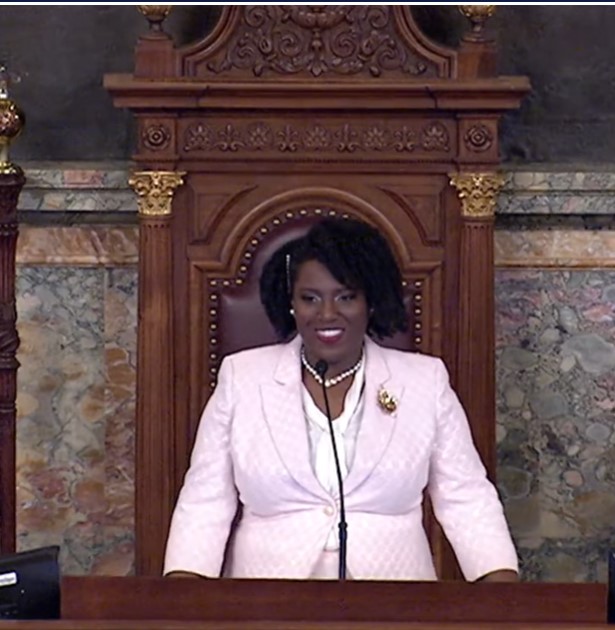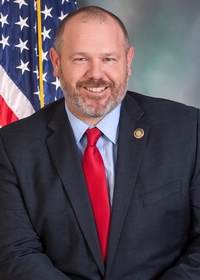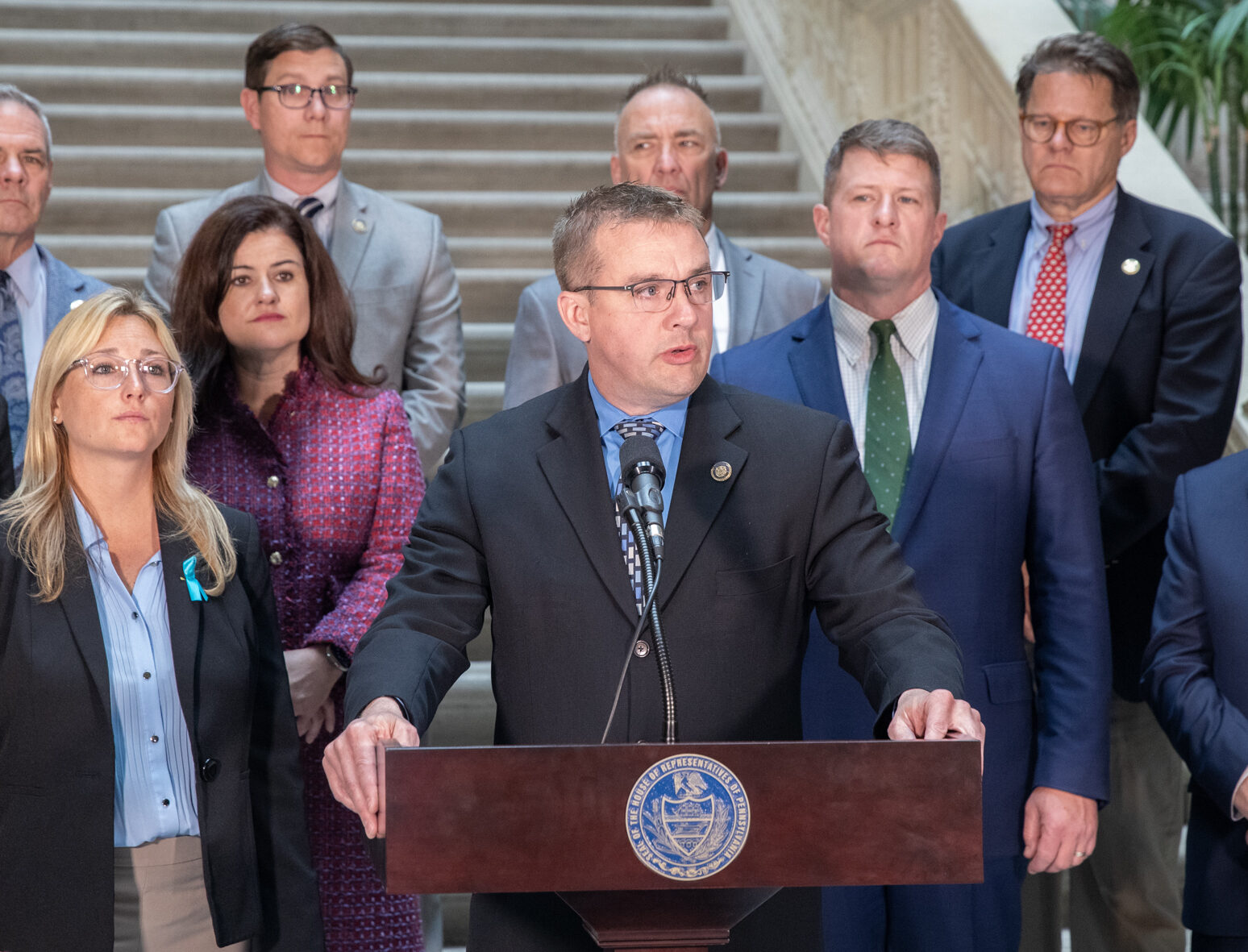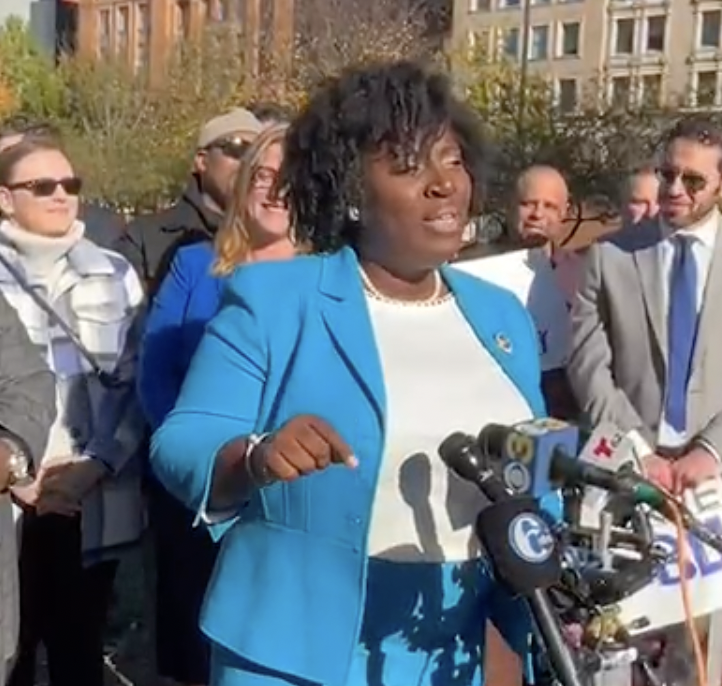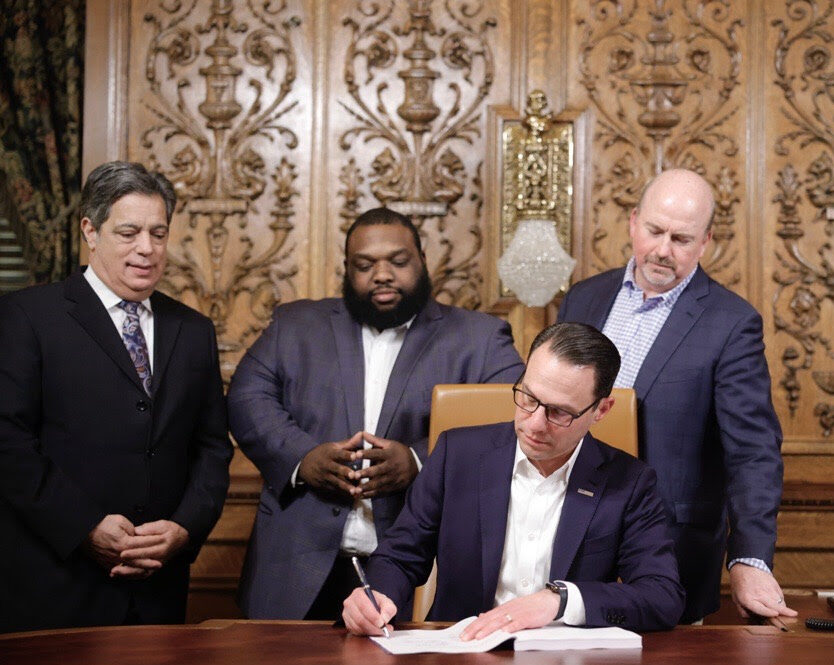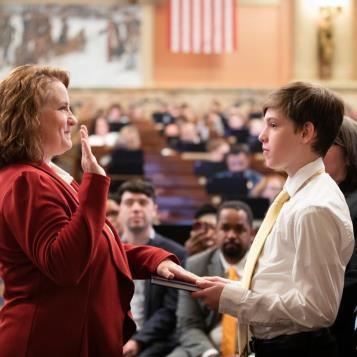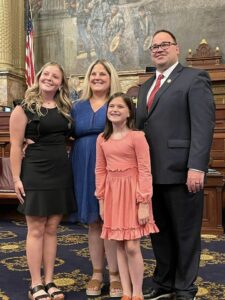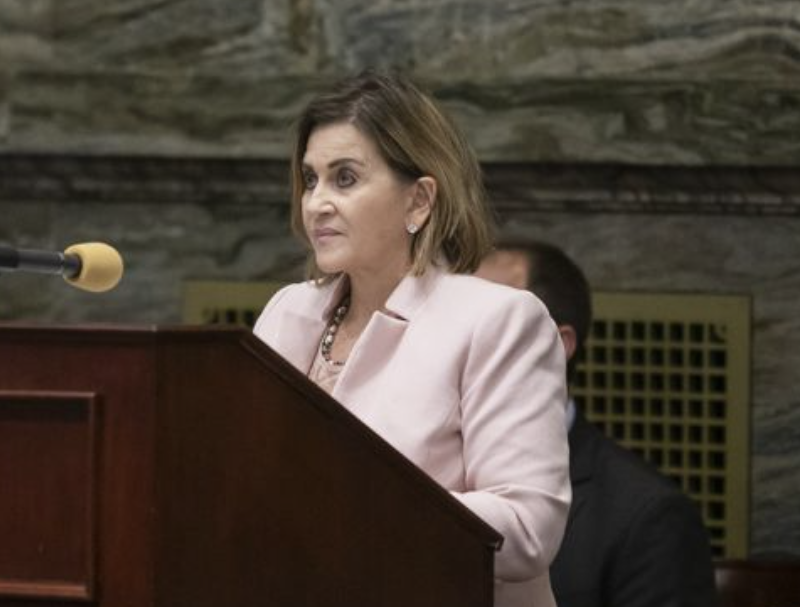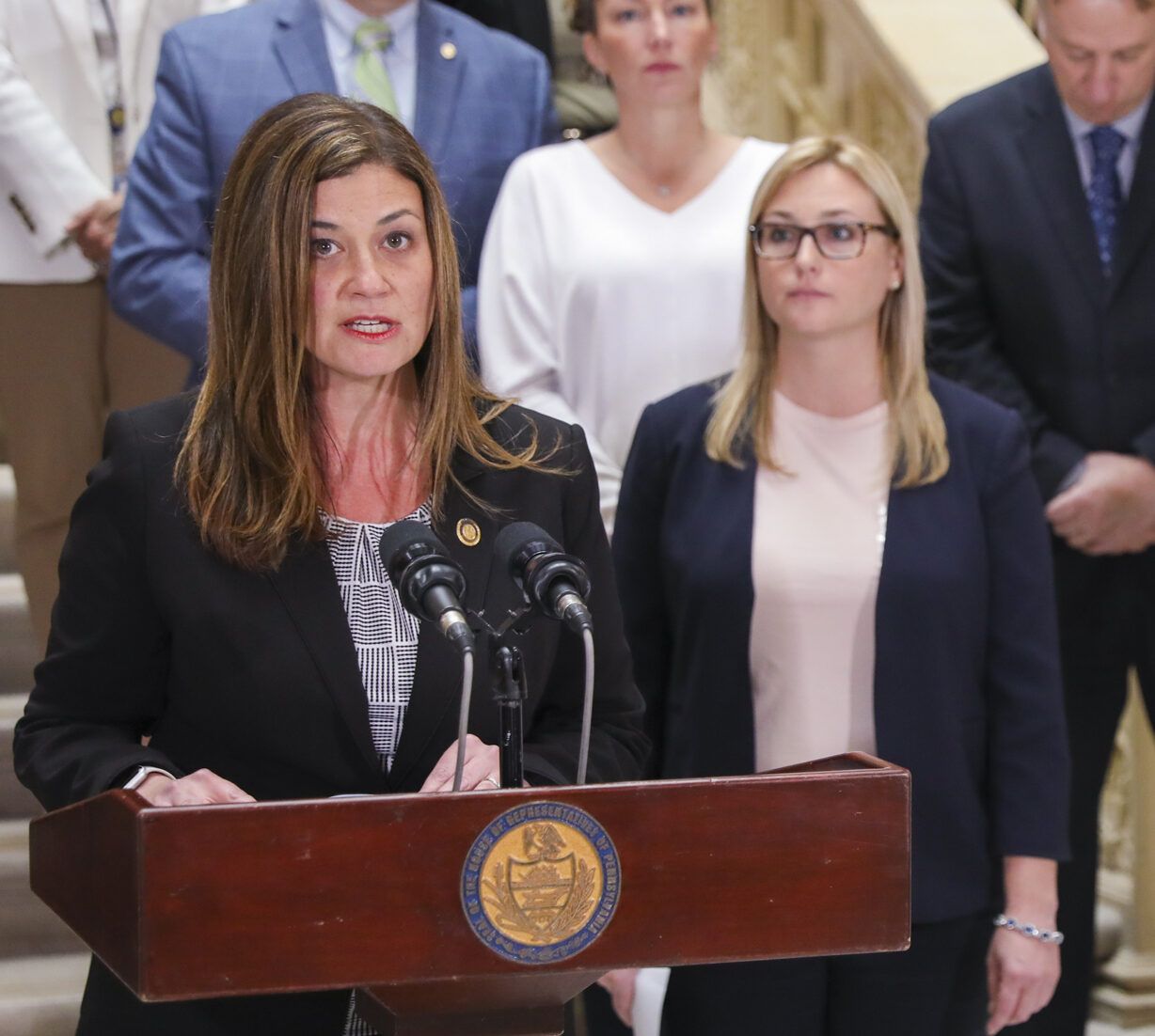PA House Kicks-Off 2025/26 Legislative Session
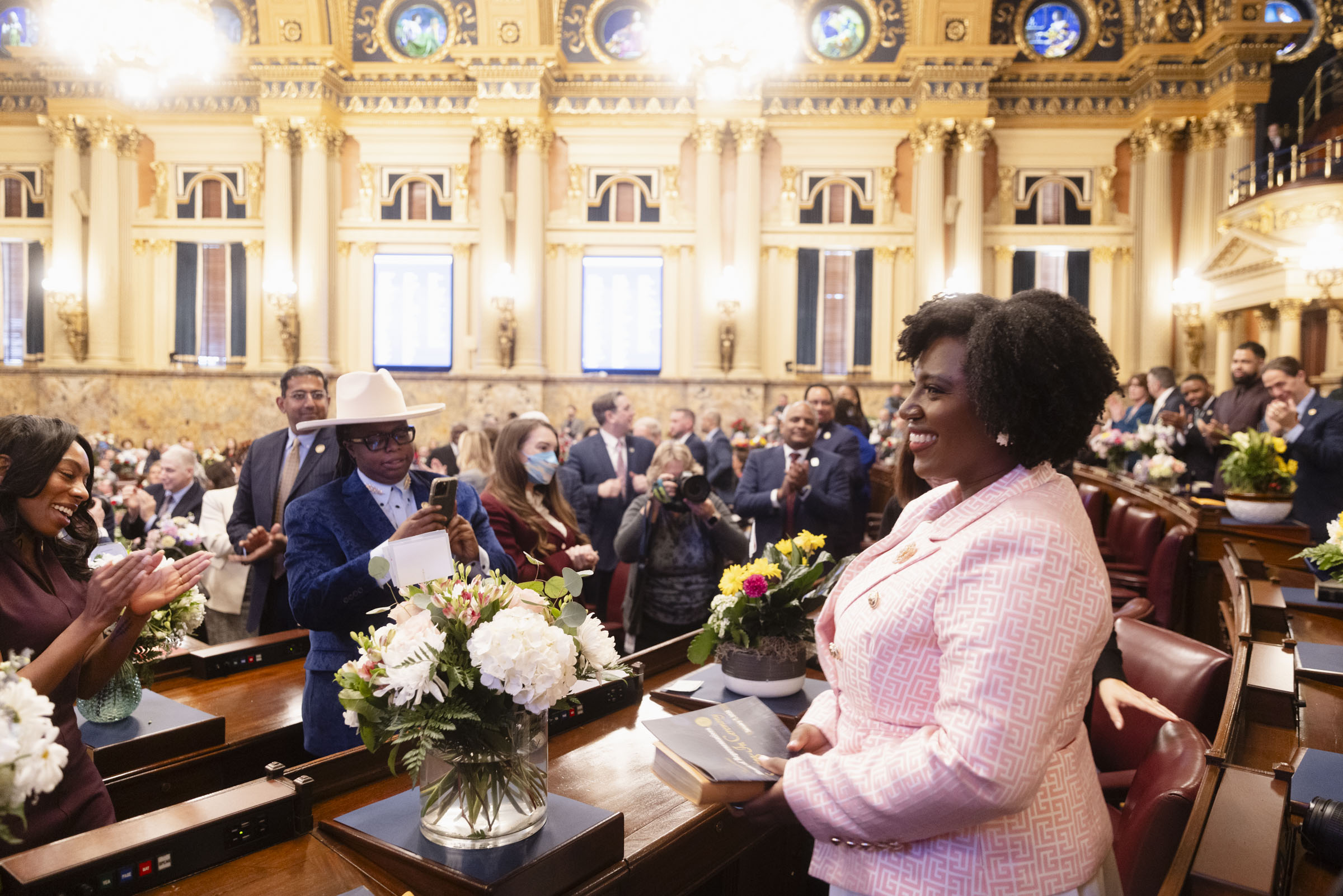
(From a press release)
The Pennsylvania state House Tuesday gathered at the state Capitol to swear in members for its 209th legislative session. Pennsylvania Supreme Court Chief Justice Debra Todd administered the oath of office to the chamber’s lawmakers, which included 16 new legislators representing communities across the commonwealth.
During the ceremony, Rep. Joanna McClinton, D-Phila/Delaware, was re-elected speaker of the House. She was sworn in by Superior Court Judge Timika Lane, and her Bible was held by Mrs. Cathryn Irvis, widow of former and first African American Speaker of the Pennsylvania House, K. Leroy Irvis.
McClinton and Republican Leader Jesse Topper tied 101-101 on the first vote but McClinton prevailed on the second vote after Topper withdrew from consideration. Rep. Matthew Gergely (D-Allegheny) is out sick so the two parties are temporarily tied.
In addition to welcoming new and returning lawmakers to the chamber, McClinton, who is the first woman to serve as speaker in the nation’s oldest continuously operating state legislative body, outlined her vision for the coming two-year legislative session as being defined by optimism, civility and productivity.
“I’m proud of what this House has been able to achieve for all Pennsylvanians by working together – from saving seniors money on their property tax and rent to tripling tax credits for working families,” McClinton reflected.
“I’m hopeful that the upcoming session will be even more productive. Our neighbors have sent us here to cut costs for families, protect access to health care, strengthen public safety, and fairly fund our schools. I look forward to the policy solutions my colleagues will present to some of commonwealth’s most pressing challenges and to spirited and respectful debate in this chamber. And in our House, it doesn’t matter where a good idea comes from as long as it helps the people we serve.”
To tackle the evolving issues coming before the chamber, the House added three new standing committees for the 2025/26 legislative session: Communications and Technology; Energy; and: Intergovernmental Affairs and Operations. Committee chairmen were announced as part of the day’s proceedings.
Aging and Older Adult Services – Chair Maureen Madden, (D-Monroe).
Agriculture and Rural Affairs – Chair Eddie Day Pashinski, (D- Luzerne).
Appropriations – Chair Jordan Harris, (D-Phila).
Children and Youth – Chair Jeanne McNeill, D-Lehigh.
Commerce – Chair Scott Conklin, D-Centre.
Committee on Committees, Chair Dan Miller, D-Allegheny.
Communications and Technology – Chair Joe Ciresi, D-Montgomery).
Consumer Protection, Technology and Utilities – Chair Danilo Burgos, (D-Phila.
Education – Chair Pete Schweyer, (D-Lehigh).
Energy – Chair Elizabeth Fiedler, (D-Phila).
Environmental and Natural Resource Protection – Chair Greg Vitali, (D-Delaware).
Ethics – Chair Pete Schweyer, (D-Lehigh).
Finance – Chair Steve Samuelson, (D-Northampton).
Game and Fisheries – Chair Anita Kulik, D-Allegheny.
Gaming Oversight – Chair Pat Harkins, (D-Erie).
Government Oversight – Chair Morgan Cephas (D-Phila).
Health – Chair Dan Frankel, (D-Allegheny).
Housing and Community Development – Chair Brandon Markosek (D-Allegheny).
Human Services – Chair Dan Williams, (D-Chester).
Insurance – Chair Perry Warren, (D-Bucks).
Intergovernmental Affairs and Operations – Chair David Delloso (D-Delaware).
Judiciary – Chair Tim Briggs, (D-Montgomery).
Labor and Industry – Chair Jason Dawkins, (D-Phila).
Liquor Control -Chair Dan Deasy, (D-Allegheny).
Local Government – Chair Bob Freeman, (D- Northampton).
Professional Licensure – Chair Frank Burns, (D-Cambria).
State Government – Chair Carol Hill-Evans., (D-York).
Tourism, Recreation and Economic Development – Chair Mary Jo Daley (D-Montgomery).
Transportation – (Chair Ed Neilson, D-Phila).
Veterans Affairs and Emergency Preparedness – (Chair Jared Solomon, D-Phila).
In the last session the state House advanced more than 400 bills, a majority passing with bipartisan support. The new legislative session runs through Nov. 30, 2026.

